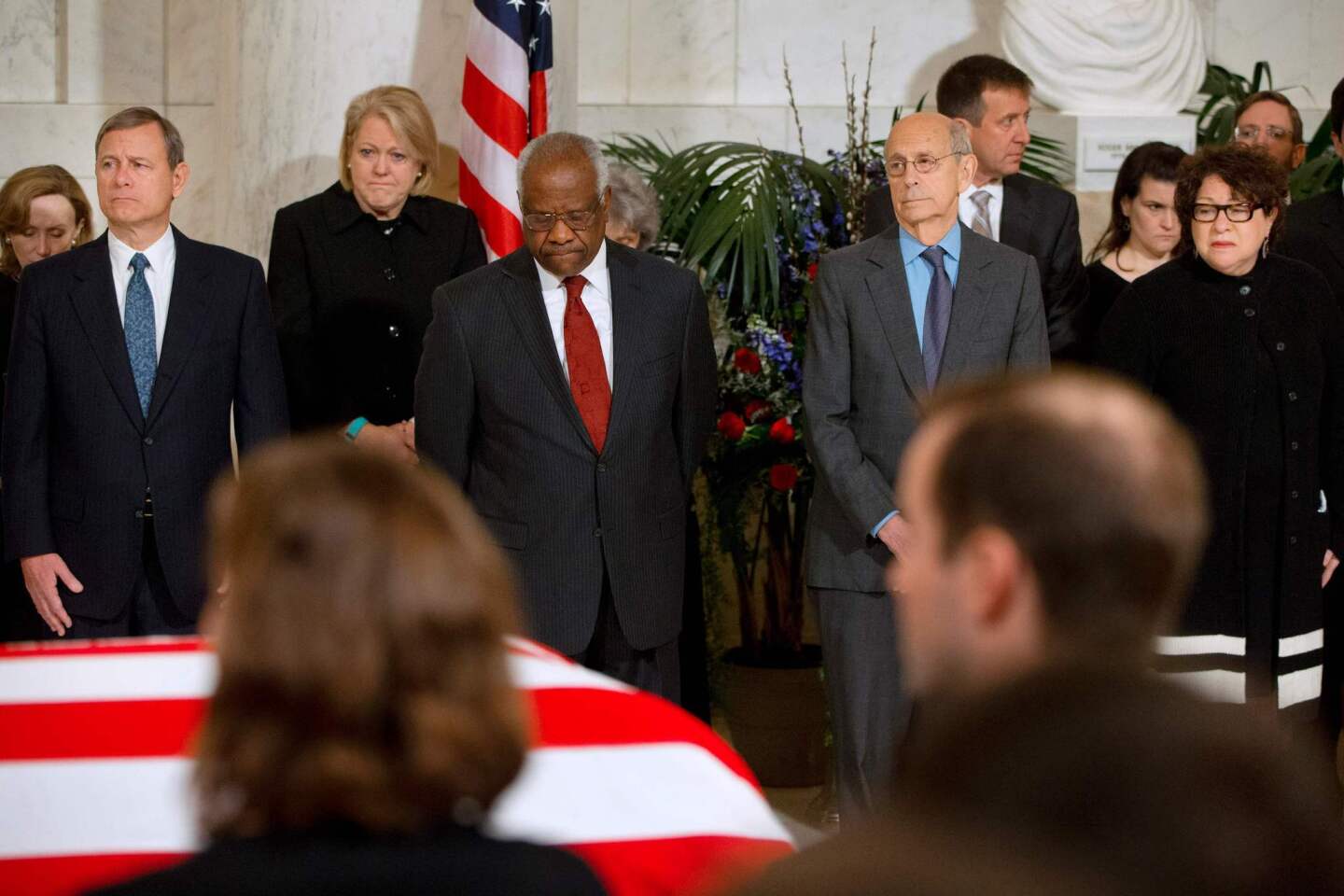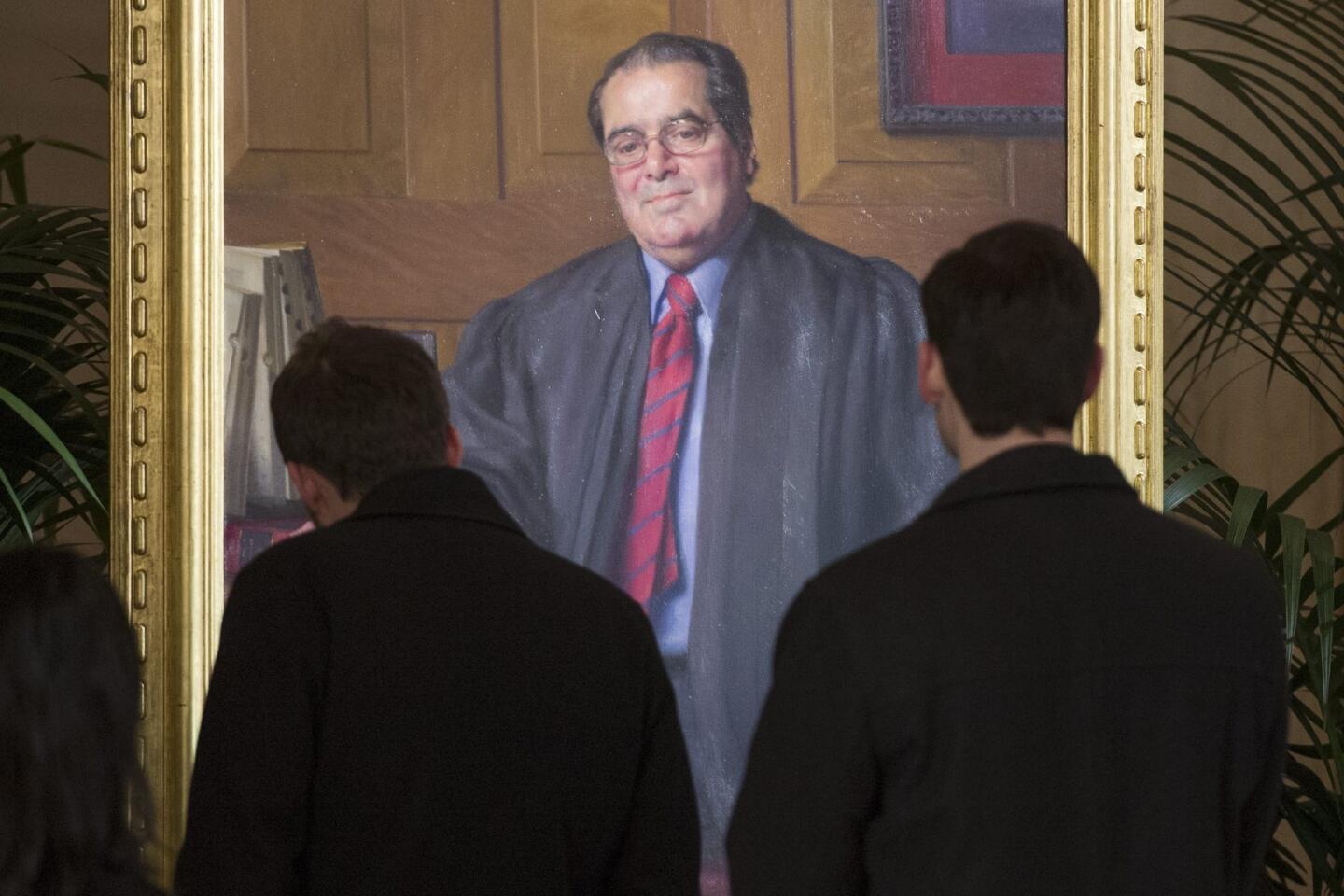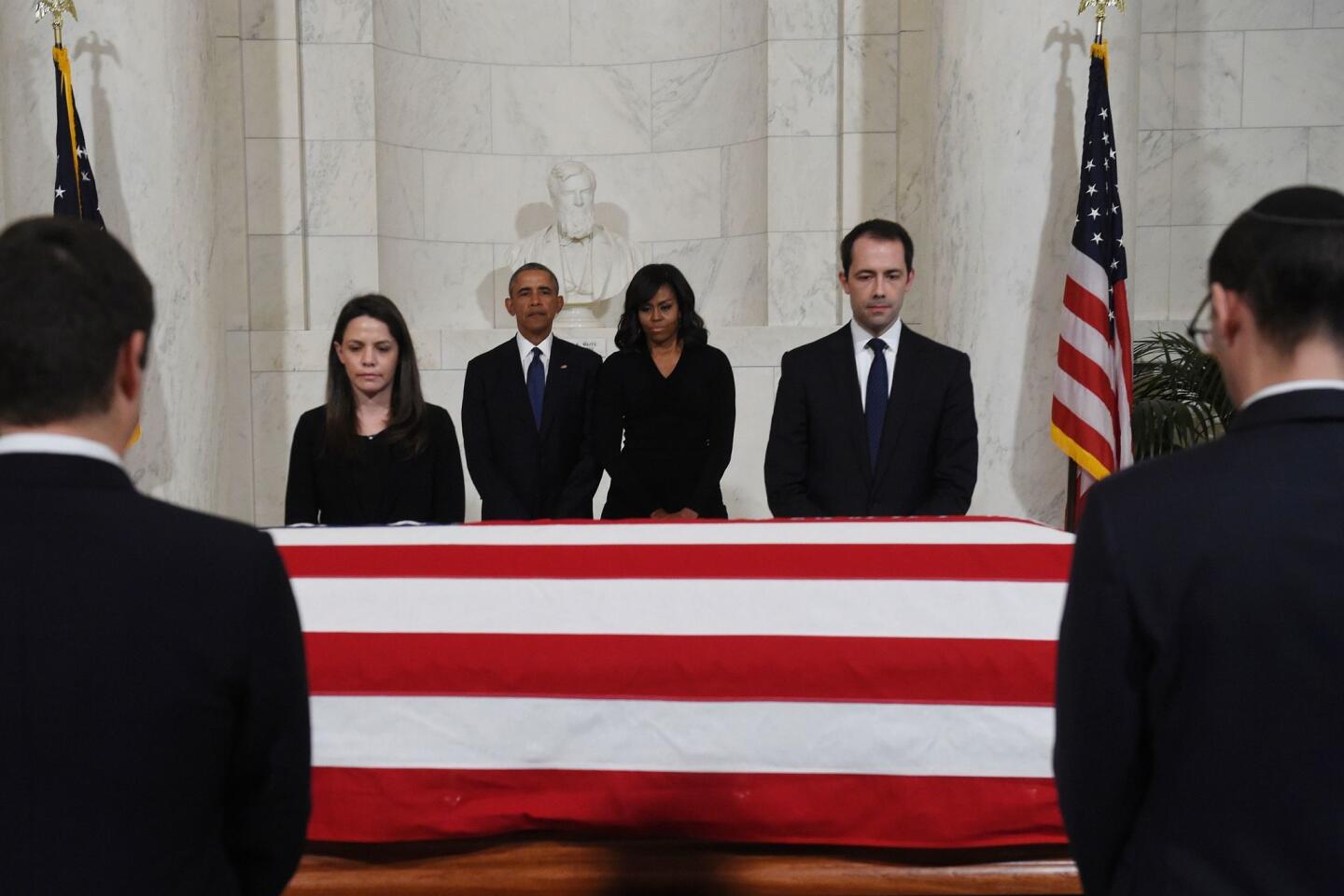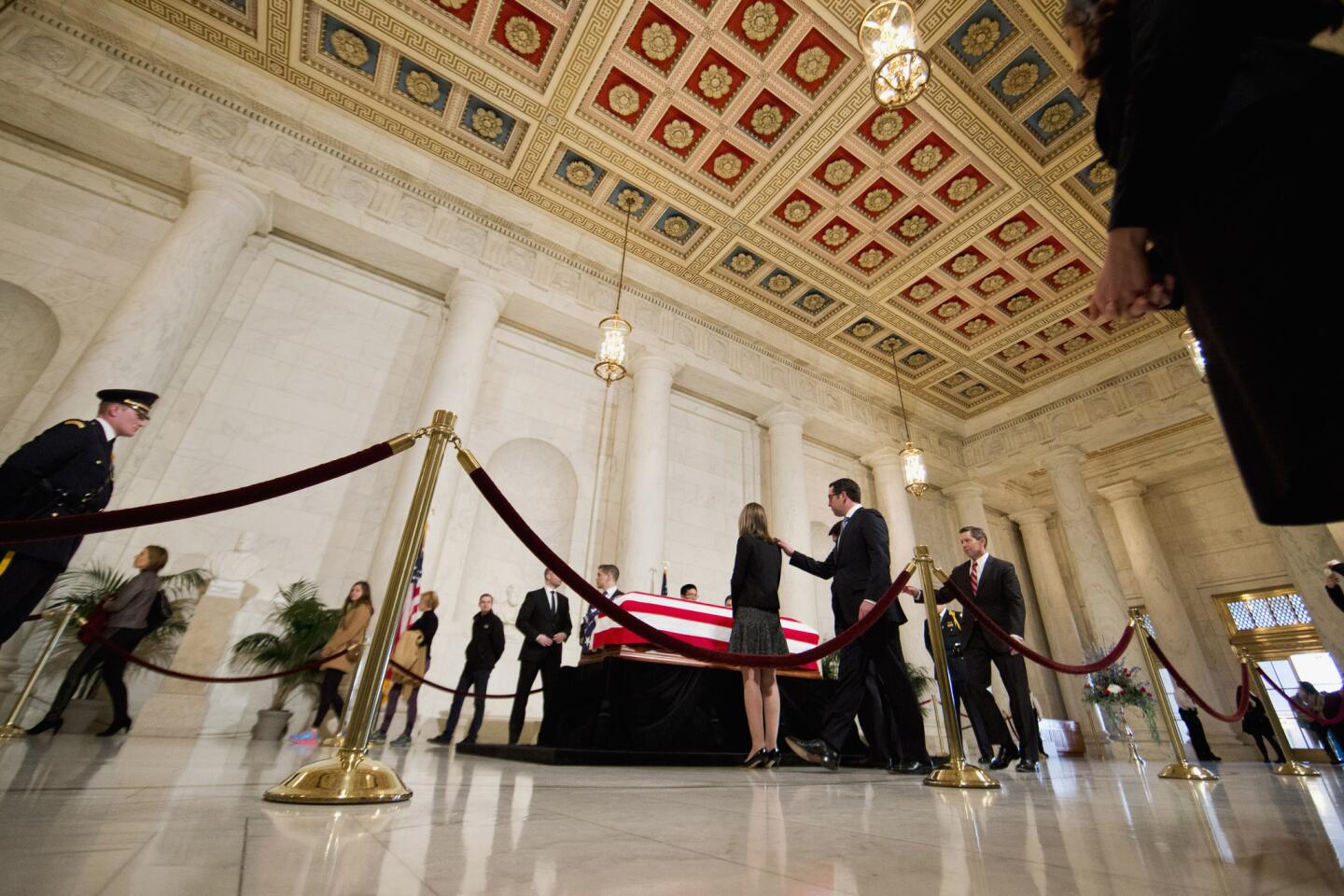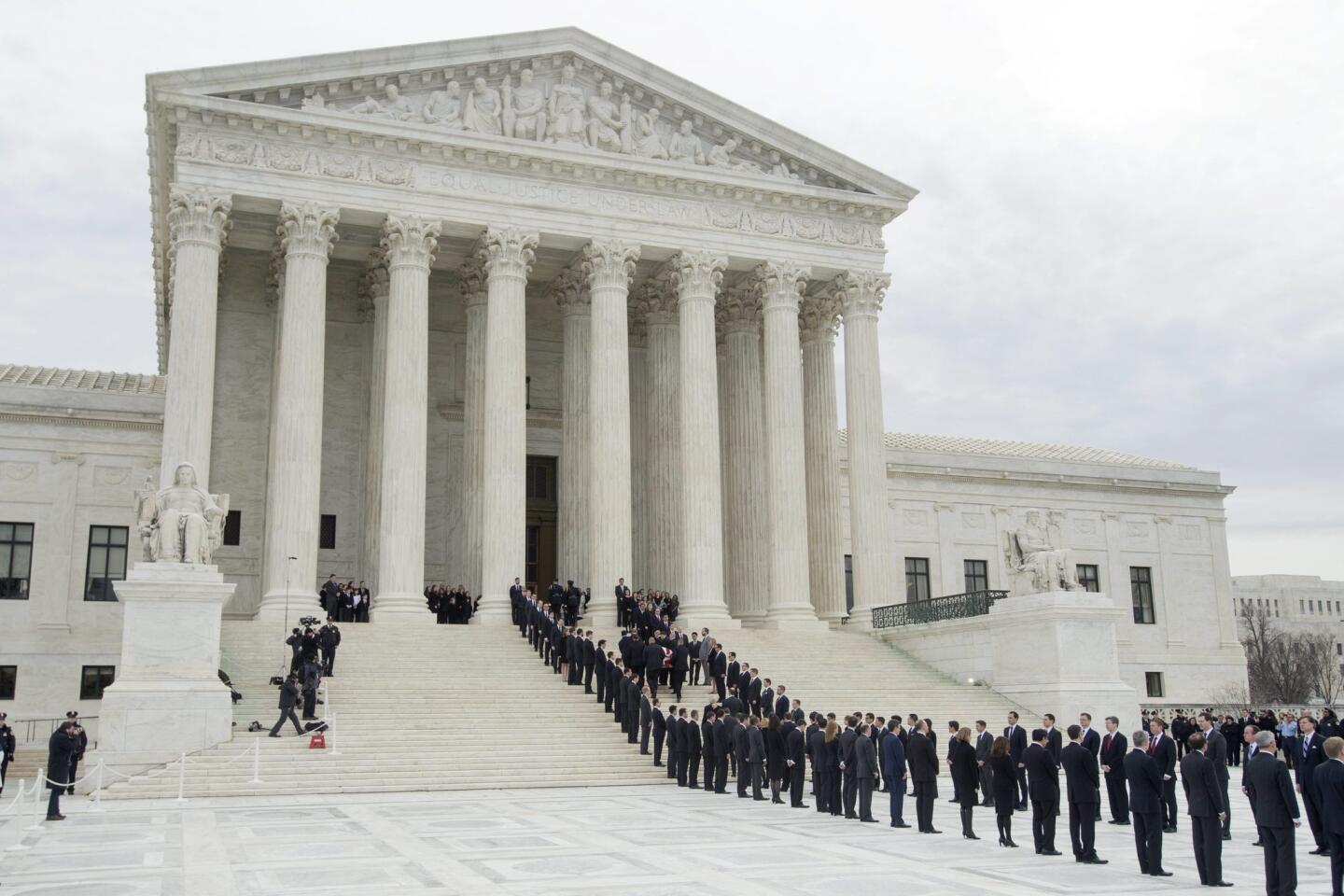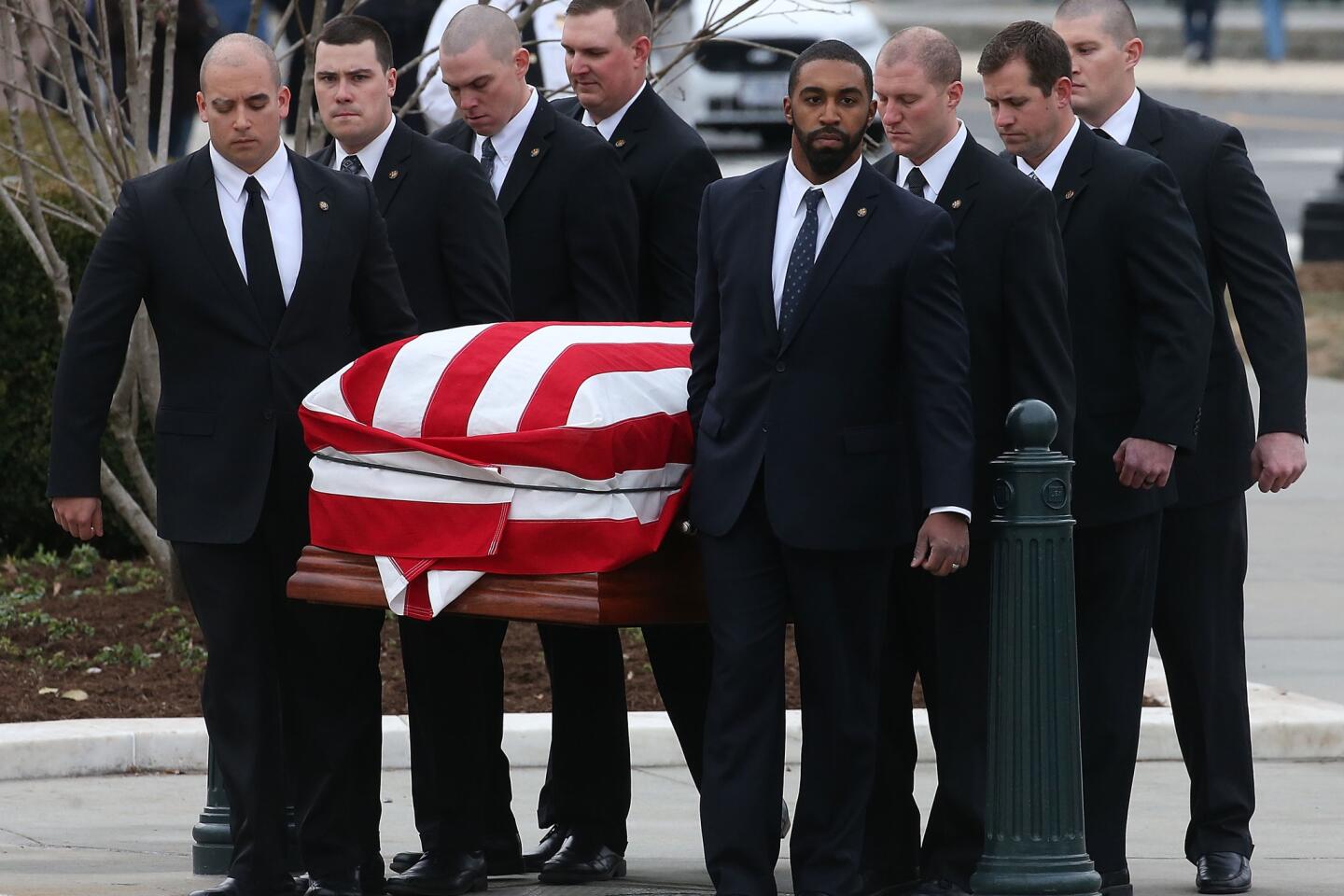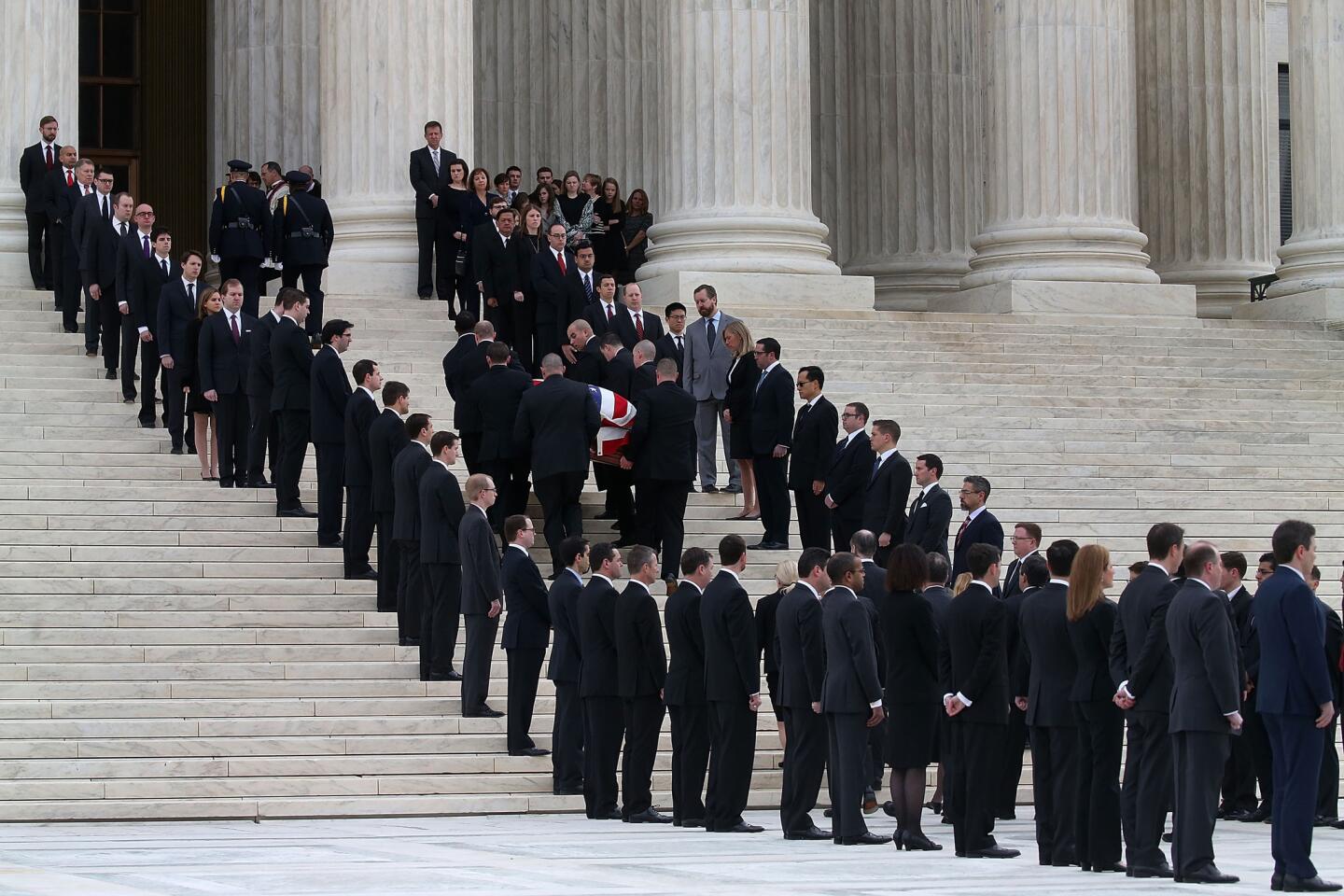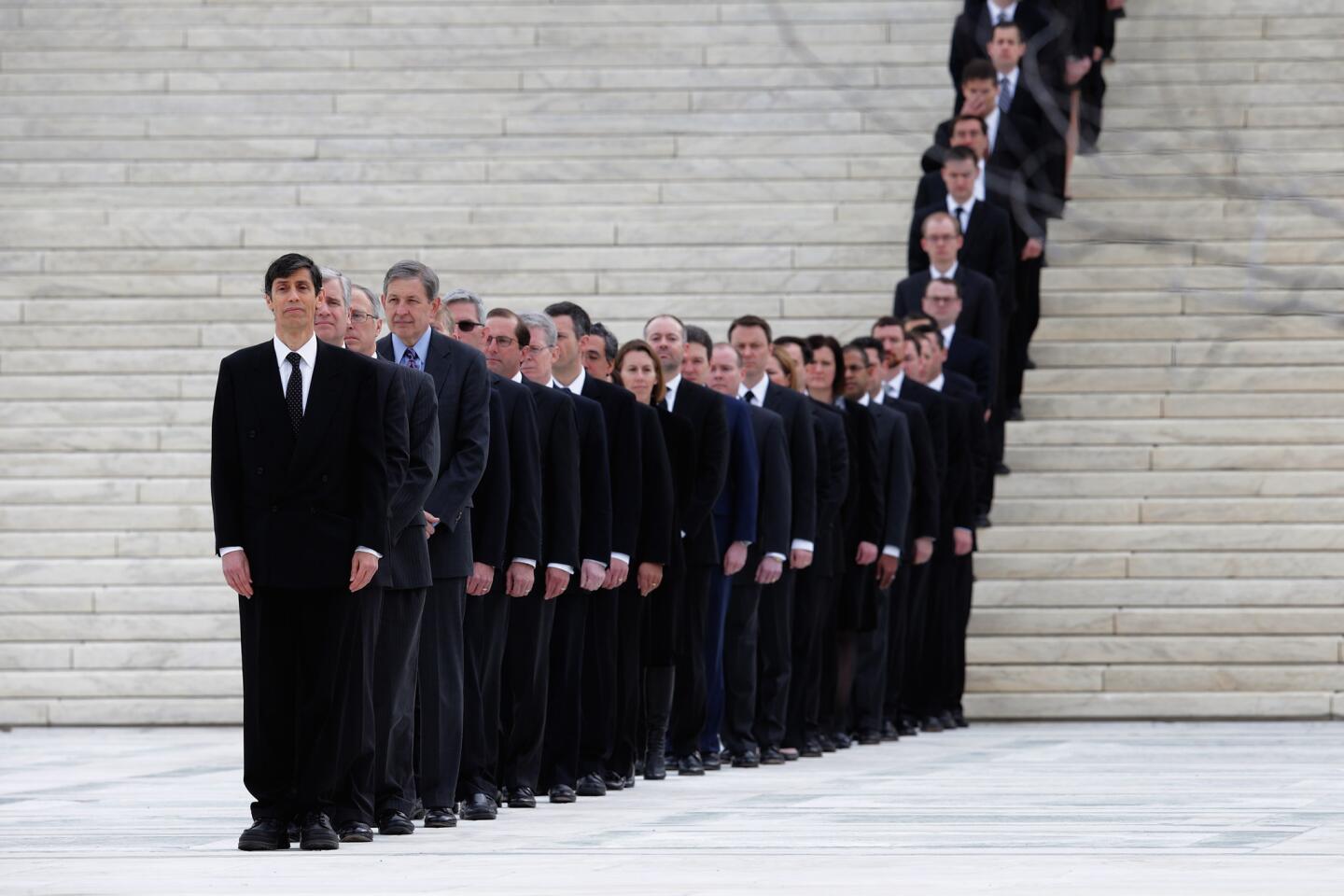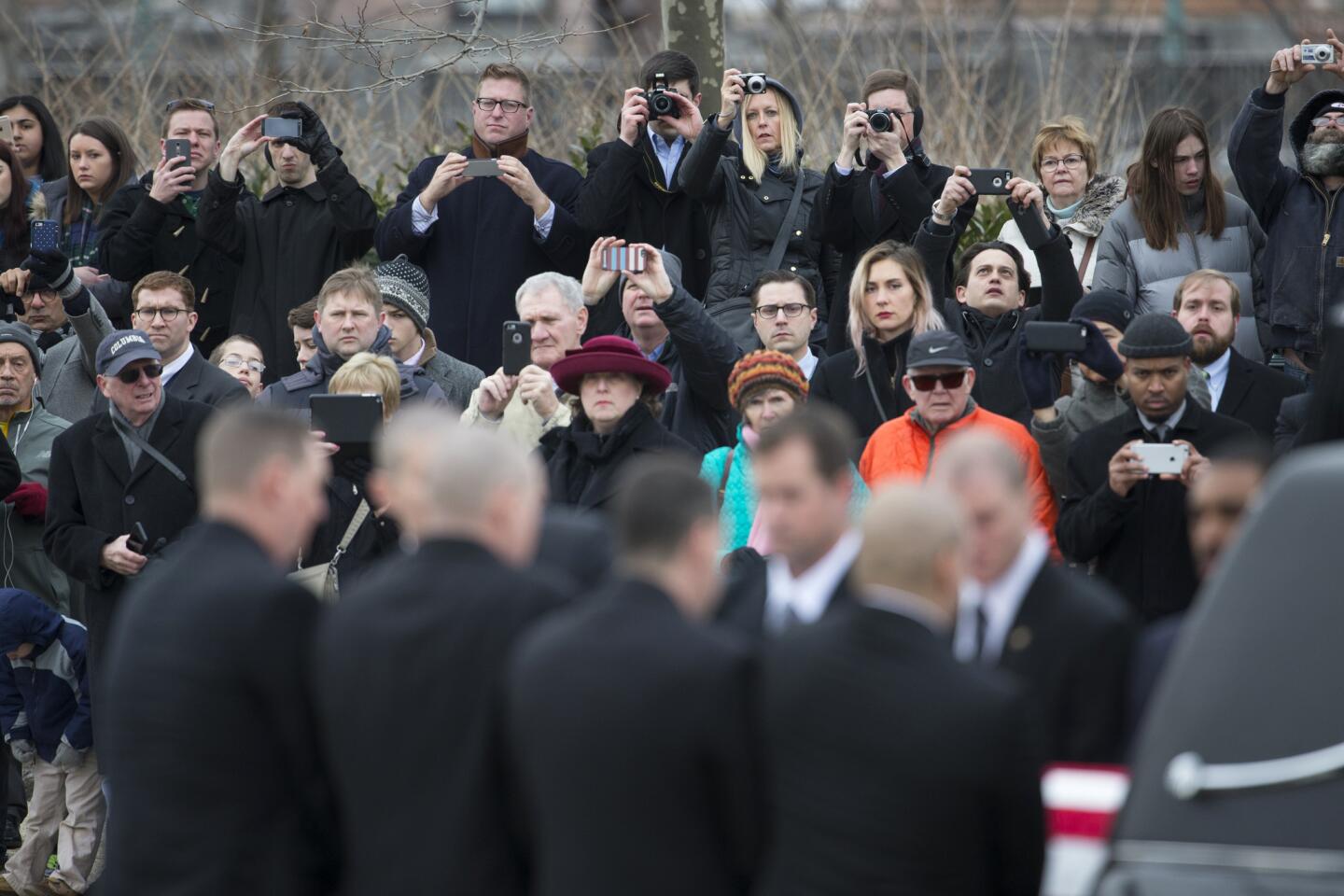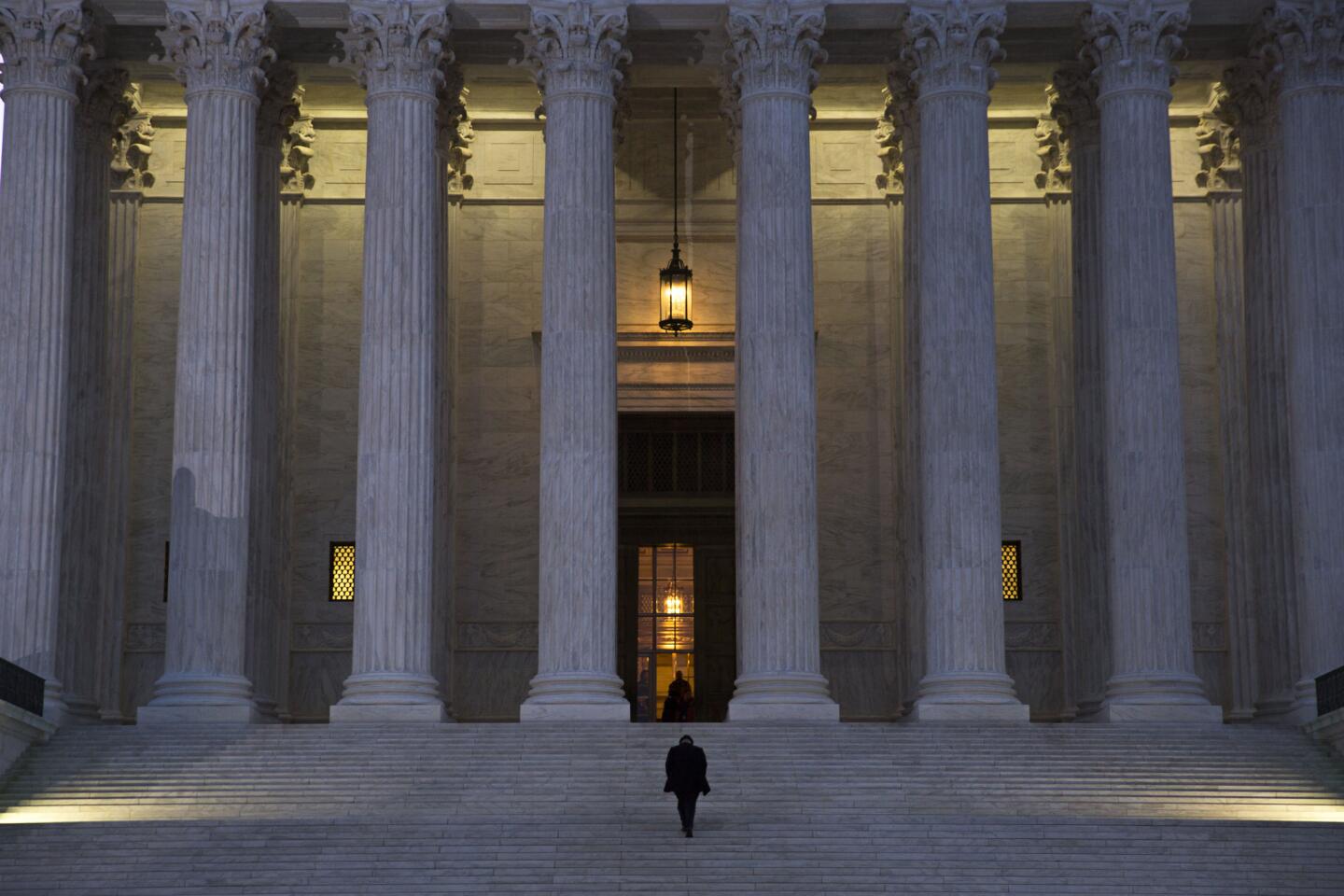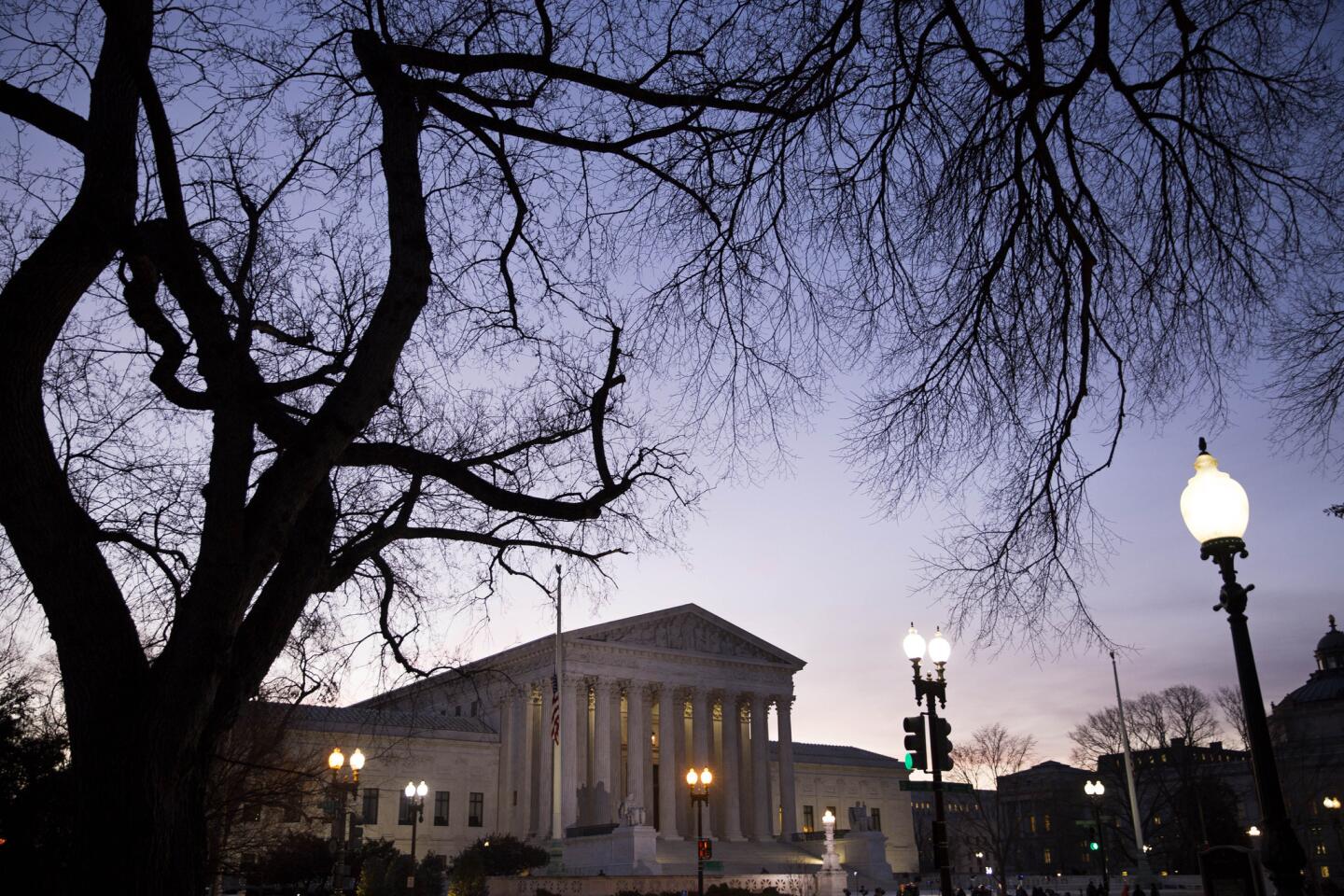Scalia’s uncompromising style at times limited his impact on the Supreme Court
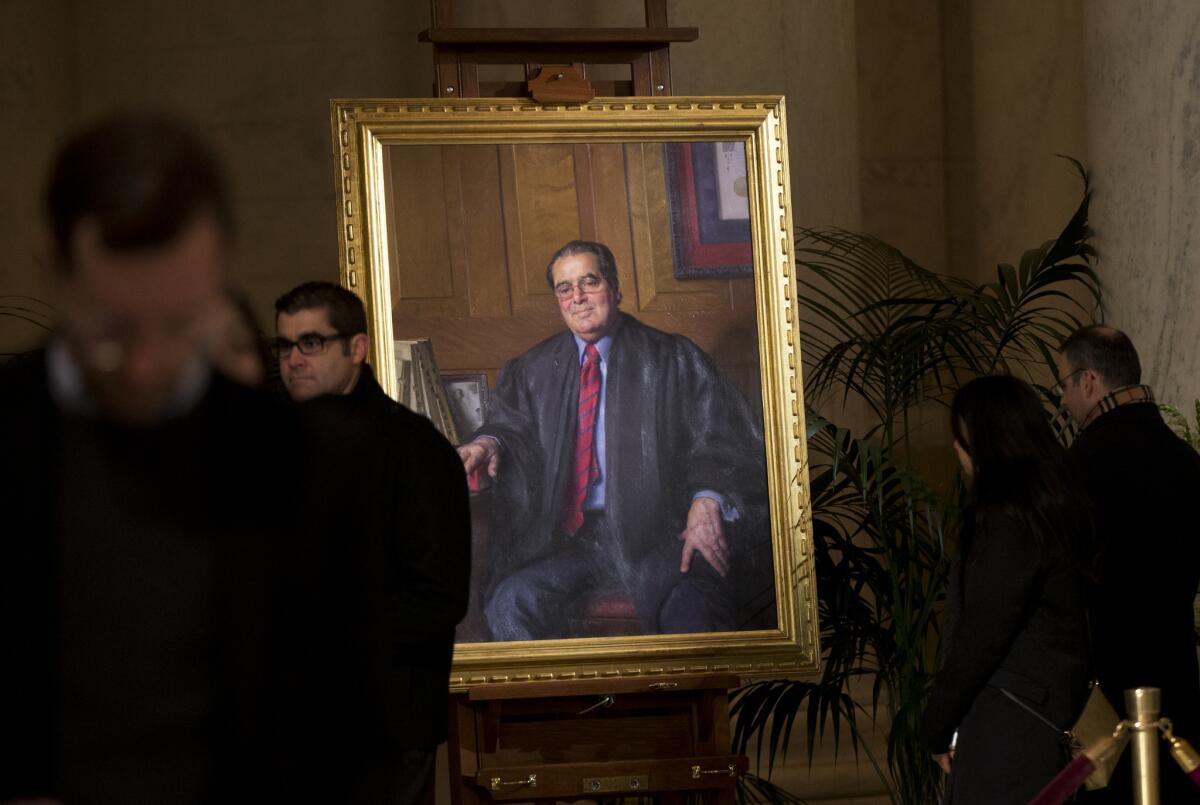
People line up to pay respects to late Justice Antonin Scalia in the Great Hall of the Supreme Court in Washington, where Scalia’s body lies in repose.
- Share via
Reporting from Washington — In life and in death, Antonin Scalia was lauded as a giant of the law and the most influential justice of his era.
But his is a complex legacy of a legal thinker who inspired and shaped a generation of conservatives, even though his landmark rulings were few.
Scalia, who will be buried Saturday following a funeral mass in Washington, enjoyed an outsized role at the Supreme Court. His sharp questioning, biting criticisms and searing wit transformed the once-staid tone of oral arguments, and he set a new standard for the art of the dissent. His well-known commitment to “originalism” forced lawyers to pay more attention to the words and history of the Constitution.
See more of our top stories on Facebook >>
But in other ways Scalia’s impact was surprisingly limited. By one common measure of success – writing majority opinions in important cases that reshaped the law – Scalia fell somewhat short given his standing as the court’s strongest conservative and, at the end, its senior justice. Despite nearly 30 years on the bench and being surrounded by Republican appointees, he was often unable to reshape the law in line with his conservative views.
He came to the court determined to roll back liberal rulings on abortion, school prayer and Miranda warnings. Instead he watched each of those rulings survive legal challenge, despite his vehement and eloquent dissents. A breaking point came in 1992, when his fellow Republican appointees Justices Sandra Day O’Connor, Anthony M. Kennedy and David Souter shocked Scalia by writing an opinion that upheld the right to abortion. Scalia considered it a betrayal and from then on, relentlessly mocked and belittled their opinions.
The same qualities that made Scalia such a transformational figure -- intellectual purity, supreme self-confidence and uncompromising positions -- at times made him a less effective justice.
Scalia has been compared in the last week to Justice William Brennan, a liberal champion who was hailed as the most influential justice of his time when he stepped down in 1990. Brennan had helped drive the effort in the 1960s and 1970s to desegregate America and extend the Constitution’s protections to police encounters on the street, to jailhouses, to public schools and much more. His quotable opinions were few because he often left the writing to clerks, but he was a master at aligning with other justices and putting together a five-member majority to change the law, and therefore history.
Scalia was never an affable playmaker like Brennan. His rigidity and scornful manner often alienated justices who might have been his allies. And his willingness -- sometimes eagerness, it seemed -- to go it alone explains why he was not often picked by the chief justice for the honor of writing important majority opinions. Instead that job often went to former Chief Justice William H. Rehnquist, O’Connor, Kennedy or current Chief Justice John G. Roberts Jr.
Unlike Brennan, Scalia drew his power and influence from his clear writing and logical analysis, even if they were dissents.
“Brennan was the consummate inside deal-maker, deftly able to patch together compromises,” said New York University law professor Richard Pildes. “Scalia’s influence came from the outside, from his philosophical clarity as well as his gift of analysis and language. Through his opinions, he exerted a gravitational pull on the law, even when he lost.”
Through his opinions, he exerted a gravitational pull on the law, even when he lost.
— Richard Pildes, New York University law professor
And Scalia frequently found himself on the losing side. A few years after losing the abortion case, Rehnquist, the most solid of conservatives, wrote an opinion upholding the Miranda rule requiring police to warn suspects of their right to remain silent. Scalia angrily dissented.
Then over the last decade, Scalia stood by helplessly as the gay rights movement gained strength in the courts, culminating in last year’s landmark high court ruling upholding a constitutional right to same-sex marriage.
Of course Scalia had his share of victories. His 2008 opinion in District of Columbia vs. Heller declared for the first time that the 2nd Amendment gave individuals a right to keep a handgun for self-defense. Before that, the court had said the “right to bear arms” was mostly about militias.
He also pressed the view that the 1st Amendment’s freedom of speech barred the government from limiting political spending. His viewpoint prevailed in a 5-4 ruling in the Citizens United case, which struck down the campaign spending limits for corporations (though the opinion was given to Kennedy to write).
Scalia also was proud of his opinions that went against his tendencies. He joined a 5-4 opinion by Brennan in 1989 that upheld a protester’s right to burn an American flag. And he wrote the 2004 opinion in Crawford vs. Washington that strengthened the right of criminal defendants to confront their accusers in court.
Scalia’s many admirers say he was devoted to getting the law right. “By sheer force of intellect and personality, Scalia helped move the court from a sloppy, results-oriented center-left institution to a more intellectually rigorous center-right court,” said Stanford law professor Michael McConnell, a conservative former appeals court judge.
In his later years, Scalia, however, seemed to have given up on persuading his colleagues and said he was writing for the future, hoping his views on how to read the Constitution and the proper role of judges would influence the next generation of lawyers and law students.
He traveled the country and delighted in confronting liberal audiences on college campuses with his harsh take-down of the freewheeling liberalism that held sway in the early 1970s when he came to Washington.
His prime target was the Roe vs. Wade decision of 1973. “The Constitution says nothing about abortion,” he told audiences. “You think there ought be a right to abortion? No problem. Persuade your fellow citizens it’s a good idea and pass a law.”
Students regularly reported they’d expected to hear a right-wing ogre and came away from his speeches either agreeing with Scalia or at least a little shaken in their beliefs.
Despite his reputation for legal brilliance, Scalia may have undercut his influence by becoming a predictable vote for conservative causes, including for the Republican Party. His critics would never forget the Bush vs. Gore decision, where Scalia declared that trying to count the remaining ballots would risk “irreparable harm” to then-Gov. George W. Bush’s extremely narrow lead.
He also had a blind spot at times when it came to civil rights laws. Three years ago, when Southern Republicans challenged a key part of the Voting Rights Act, Scalia raised eyebrows by describing the historic law as a “racial entitlement.”
A justice who adhered to the words and history of the Constitution might have seen this as what Scalia liked to call “an easy case.” The law was based on the 15th Amendment, which said that the right to vote “shall not be denied or abridged” because of race and that “Congress shall have the power to enforce this article through appropriate legislation.” Instead, Scalia cast his vote with a 5-4 majority to strike down the law because the court’s conservatives concluded it was no longer needed. His critics said he was engaging in exactly the kind of judicial legislating that he had often railed against.
Scalia is destined to join the small group of the court’s best writers, including Justices Oliver Wendell Holmes, Louis Brandeis and Robert H. Jackson, who live on through their quotable opinions.
In his 2001 opinion in a dense regulation case, Scalia said major changes in law do not arise from minor, vague provisions. Congress does not “hide elephants in mouse holes,” he wrote. It has become one of the most quoted comments in legal briefs and judicial opinions.
“Justice Scalia was an influential justice not because he was right, but because he could write,’’ quipped Pamela Karlan, a liberal Stanford University law professor who is seen as a long-shot to become Scalia’s replacement on the court. She said she often disagreed with his conclusions, but acknowledged his arguments forced her and other liberals to sharpen their own. “The force of his personality and the power of his pen changed the terms of the central legal debates.”
On Twitter: @DavidGSavage
MORE
Antonin Scalia: In his own unforgettable words
Meghan Daum: Scalia and Ginsburg: The end of a beautiful friendship
Scalia’s last moments on a Texas ranch — quail hunting to being found in ‘perfect repose’
More to Read
Sign up for Essential California
The most important California stories and recommendations in your inbox every morning.
You may occasionally receive promotional content from the Los Angeles Times.
